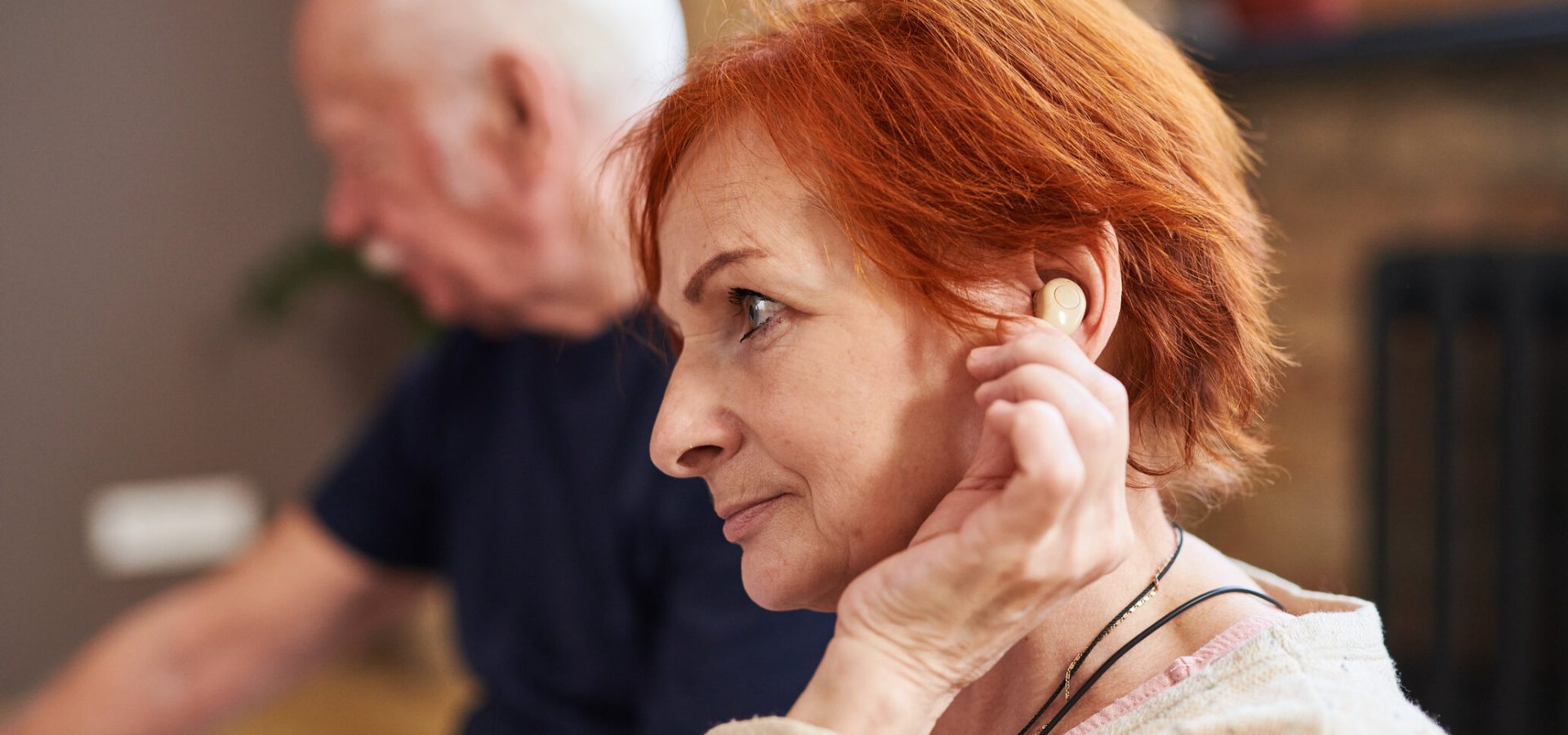Menu

Although hearing aids can greatly improve one’s quality of life, they can also be a source of frustration if they constantly fall out of your ears. Problems with a loose hearing aid can be stressful, especially if it causes the wearer to be constantly on guard against losing or damaging the device while going about daily activities such as grocery shopping, going to the gym, and going to and from work.
Fortunately, if your hearing aids keep falling out, there are some things you may try to fix the problem.
1. Figure Out If It Occurs during One Particular Activity
Is there a specific time of day or a specific activity that causes you to lose your hearing aid? When you eat, talk, or exercise, or even if your ear canal is wet, your hearing aids could become dislodged. In this case, it may be necessary to have your hearing aid or earmold professionally adjusted, or if you have spares, you can try a different size insert to see if it helps.
2. Take a Good Look at Your Inserts
If the earpiece of your hearing aid is made of foam or silicone and it keeps falling out, you may be using the wrong size. It will be difficult to fit the hearing aid’s earpiece into your ear if it’s too big, and it will shift position as you go about your day. If the component is too small, installing the hearing aid won’t be difficult, but the aid will become dislodged if you shake your head or lean forward.
It is recommended to replace foam tips every two to three weeks and silicone tips every four to six months. If you haven’t replaced yours in a while, there could be a problem. It’s possible that you’ll need to get your molds adjusted if they were manufactured specifically for your ears.
3. Inspect How You Insert Your Hearing Aids
Incorrect insertion can be the root cause of hearing aids falling out of the ear. Make sure you’re putting your personalized hearing aids in the right ear. With bigger hearing aids, the device should rest flush with the outer ear lobe; with smaller ones, it should be inserted all the way into the ear canal. If you’re having trouble getting your hearing aids to go in and stay in place, you can either try again or use a mirror to double-check. You may find the owner’s manual useful as well.
4. Remove Any Buildup of Earwax
Hearing aids that have been correctly fitted and placed may still not work if earwax has built up in the ear canal. Wax buildup in the ear canal can dislodge hearing aids and make them ineffective. Having a doctor examine for wax buildup is preferable to attempting to remove earwax on your own because of the risk of injuring your ear canal.
5. Using Hearing Aid Accessories to Prevent Dislocation
You may have more trouble keeping your hearing aids in place if you’re really busy. Perspiration is another culprit in jarring loose hearing aids. Hearing aid attachments are widely available to help with this. You can get a better fit for your hearing aids by using a headband, a strap, double-sided tape, or clips.
6. Thinking about Getting New Hearing Aids
One possible cause of your hearing aids falling out of your ears is that they are more than five years old. If you’re having issues with a set of hearing aids that used to work fine, it may be because your ear canals have changed over the years. This is why it’s recommended that you update your hearing aids and molds every 5-7 years.
Conclusion
Overall, these are some of the most common reasons a hearing aid could fall out of your ear, but they’re certainly not the only ones. A consultation with an audiologist or another specialist may be necessary if you find that you need help with these conditions or if you continue to experience problems after determining the cause.
If you are looking for a great source of hearing aids in Langley, look no further than our expertise here at Fraser Valley Beltone. We take an approach to hearing care that no other company can match. It’s based on connecting with you as a person – and understanding what you enjoy in life and what’s important in a healthcare partner. Call us today to book your first hearing test with us.
Share Post
Facebook
Twitter
LinkedIn
Email
Reddit
Pinterest
